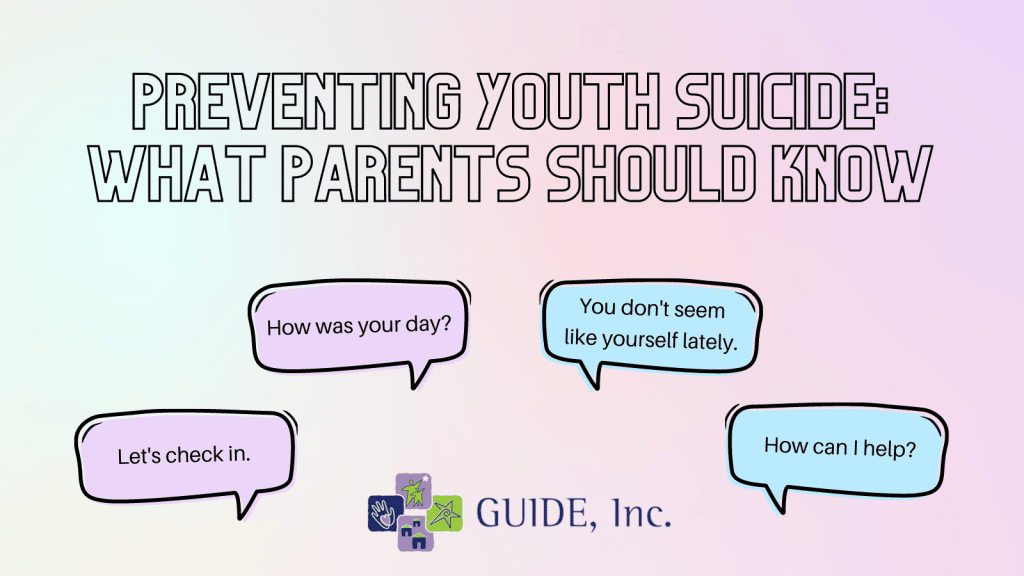Parents can play a critical role in preventing youth suicide. Even if you think it will never happen to you or your family, it’s important to understand the facts, stay connected with your child and know what to do in an emergency situation.

1. Know the facts. Suicide is the 3rd leading cause of death in 10-24 year olds in Georgia (AFSP). Results from the 2019 Youth Behavioral Risk Factor Surveillance System reveal that 18.8% of high school students seriously considered attempting suicide and 8.9% actually attempted suicide (CDC). While it may be a common misconception that these issues only impact adults, youth suicidal ideation, attempt and completion are on the rise (JAMA Network). Learn more surprising facts in Busting Myths About Mental Health.
2. Keep the conversation going. One of the best things a parent can do to prevent youth suicide is to keep lines of communication open. Even if you don’t suspect there is an issue, open communication will make it more likely that you notice if your child’s mood or behaviors change and that they open up to you if they are struggling. Having ongoing conversations is key to check in on their daily life, know if they need emotional support and connect them to professional help if necessary.
High schoolers from the Newton County College and Career Academy weigh in on how parents should approach their kids to have important conversations:
Grace: Parents should have a one-on-one and ask how it’s going – whether that be school, work, athletics or even extracurriculars. This is a great conversation starter and gets their child more open to asking how they are without being so obvious.
Hailey: It’s easier to ask a child if they are okay when you have a relationship built with them. With no connection they’re going to be scared to tell you anything. It also helps if the parent remains calm when the child says something is wrong rather than blaming them for everything. An easy way to ask a child if they are okay is starting off by asking: “How was your day?” Then, if you notice something is off, you may want to follow up with “Is everything okay? Do you need someone to talk to?”
Blake: Keep a non-confrontational demeanor and treat them to something they enjoy (ice cream, shopping, etc.), and then calmly ask them if they are doing okay.
Justin: Parents should always approach their child calmly and not in an accusatory or aggressive way.
A great resource to share with your child is the My GCAL App, designed to help young people experiencing a crisis access the Georgia Crisis & Access Line (GCAL) via chat, text or phone call 24/7/365.
3. Pay attention. Friends and family are often the first to recognize the warning signs of suicide and can take the first steps toward helping an at-risk individual find help. In fact, four out of five suicide deaths are preceded by warning signs (America’s Health Rankings). Learn more about what to keep an eye out for in Preventing Suicide: Risk Factors & Warning Signs. If you are faced with a situation where someone you know needs help, know how to take immediate and effective action with these tips from Inspired to Make Healthy Choices: Suicide Prevention.
If you need help for your child, yourself or someone else, the 988 Suicide & Crisis Lifeline provides 24/7, free and confidential support for people in distress, prevention and crisis resources for you or your loved ones, and best practices for professionals by calling or texting 988 or chatting at 988Lifeline.org.
